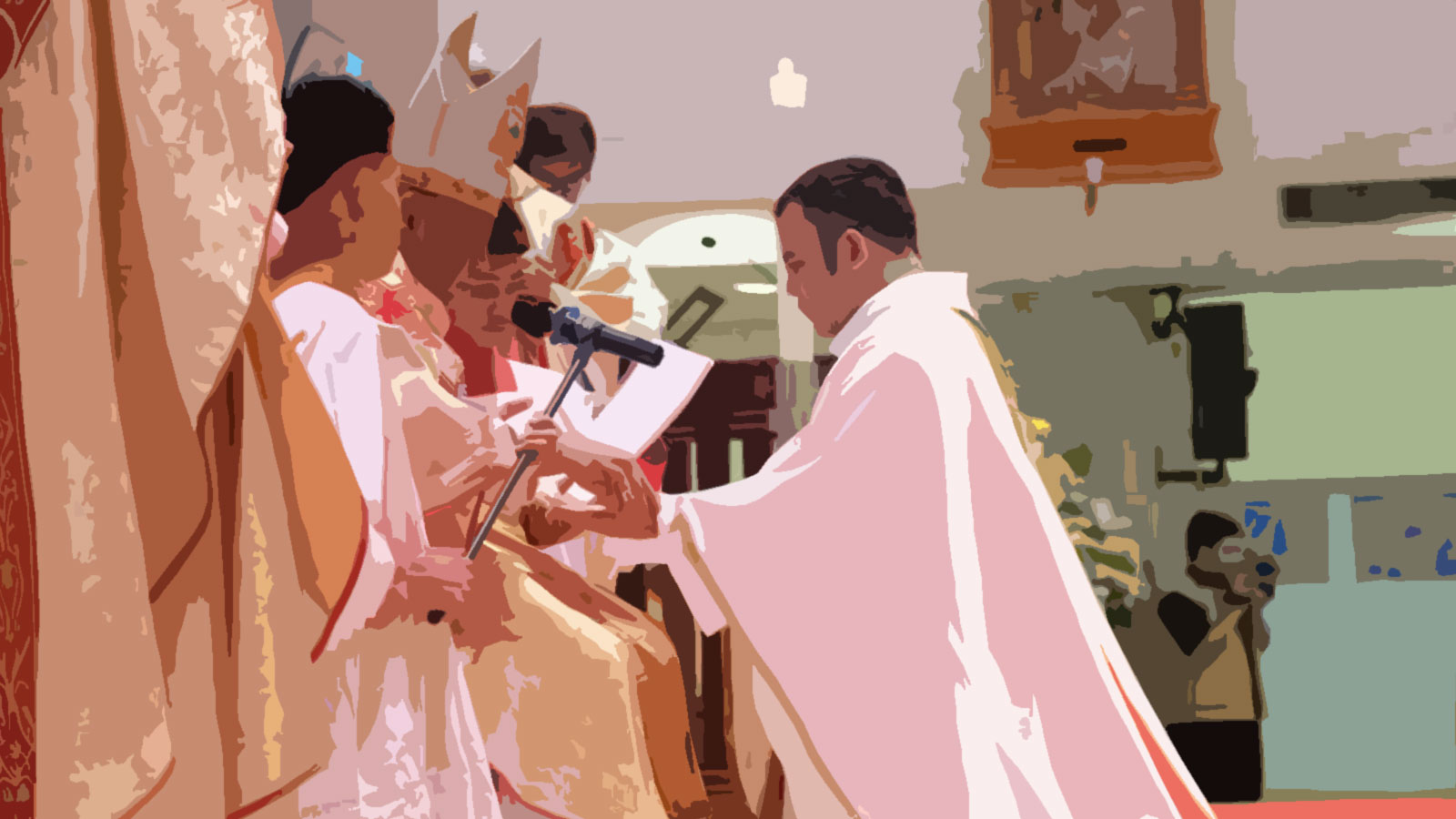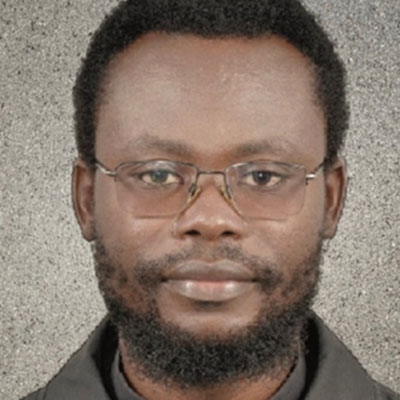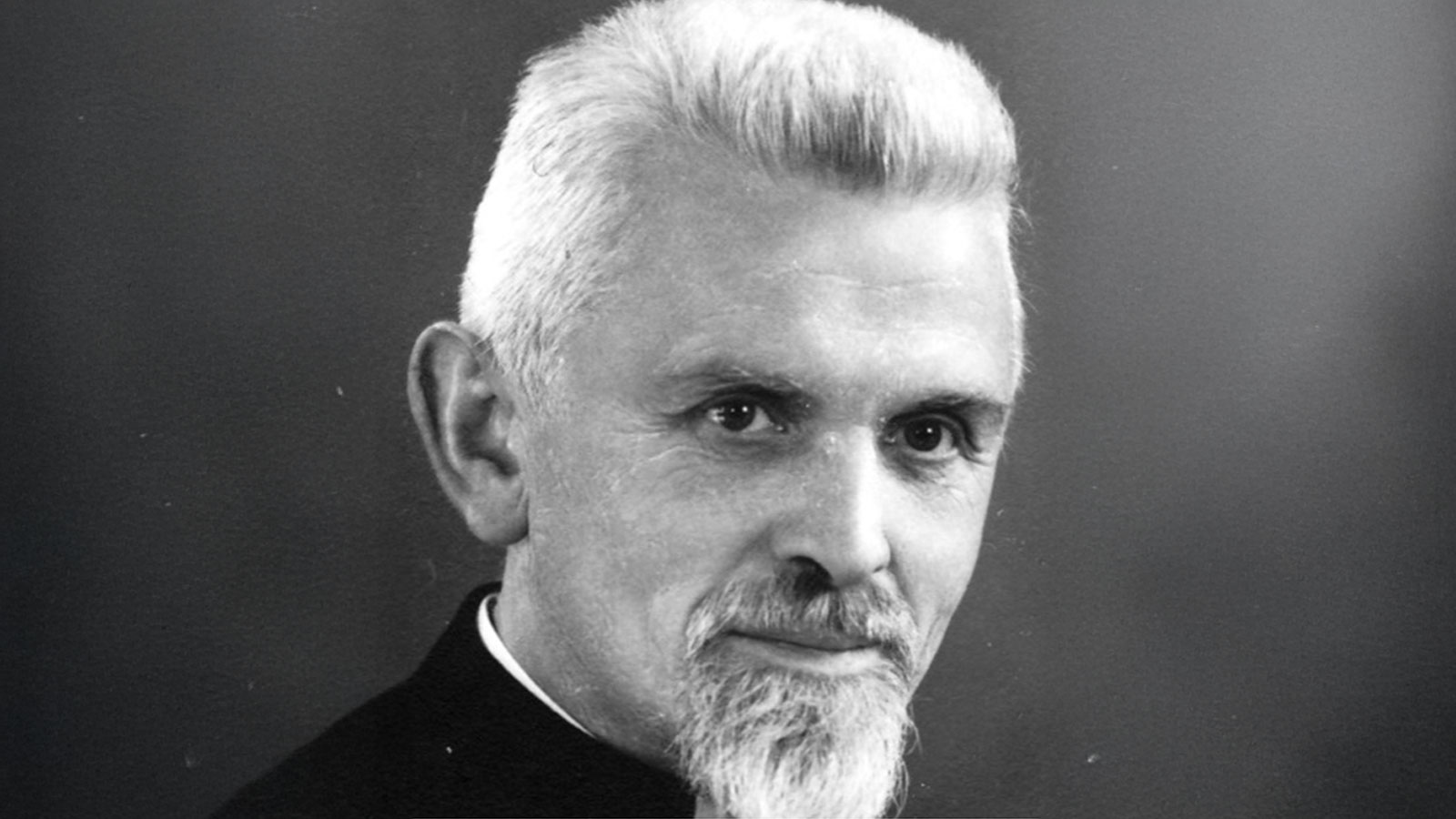 by Adorable Castillo, cicm Vicar
by Adorable Castillo, cicm Vicar
We joyfully celebrated the CICM’s 160th foundation anniversary on November 28, 2022, and we will solemnly celebrate the bicentennial of the birth of Théophile Verbist, our Founder, on June 12, 2023. Allow me to make a comparison between our Congregation’s beginning and its current situation. I will only focus on one aspect, namely the availability and management of our financial resources. We are aware that some confreres have been found wanting when it comes to financial management. As it is stated in the Acts of the 15th General Chapter: “We have observed a few cases of mismanagement and financial fraud.”[i] Perhaps one of the causes of this unfortunate situation was the availability of sufficient, if not abundant, resources at our disposal. Some confreres failed to use them wisely. They apparently lost their moral bearing, succumbed to the temptation, and were led astray.
In a letter (#549) addressed to the Novitiate in Scheut on October 20, 1867, Verbist wrote: “All beginnings are difficult, and I know better than anyone that even with the best intentions in the world, one does not always do what one would wish to do. From the beginning, we have been faced frequently with difficult options ... Now we must build a congregation which is founded on solid virtues if we want to reach our goals ... Our spiritual resources must exceed by far our physical ones.”
Verbist made every effort to secure sufficient financial resources for the success of his missionary adventure. He received financial support from various sources, such as the Holy Childhood, the Propaganda Fide, and ordinary Catholics in Europe. He embarked on a missionary journey, of course, not without “food, bag or money” (Mk 6:8). But his greatest resource was his faith in the Divine Providence. Let me quote from some of his letters.
– My great trust in God who imposed the whole of Mongolia on me always reassured me that I would not lack the means.
– The good God preserves us from catastrophes, our Christians are permanently in the church imploring the help of the sky.
I have the confidence that He will not remain deaf to our supplications and that He will at least send us enough not to die of hunger.
– The good Lord knows fully well that, without money, there is no way to do his work. He will not refuse it to us.
Today, the challenge is how to learn a lesson from the good deeds of Verbist and his first companions, particularly how to manage and put our sufficient resources to good use. How do we maintain creative proportionality? Verbist rightly found a formula. “What they lacked in financial resources, they made up for their faith and enthusiasm.”[ii] When resources were scarce, faith and enthusiasm were abundant. What about us? I hope that the inverse relationship is not true. I made the following schema so that each confrere can fill in the blanks and take to heart this challenge:
Circa 1862: lack of financial resources ------ abundant faith and enthusiasm
Circa 2023: sufficient resources ------------ ________________
We have established extensive material infrastructure for the Congregation and put up enough financial resources for our ad intra and ad extra needs after more than 160 years of existence. What about our “spiritual resources”? Can we claim the same laudable endeavor as that of Verbist? Do we have enough faith to move mountains? Do we have the same missionary enthusiasm as Verbist and his first companions to face the challenges of the 21st century?
The “spiritual resources” that I am talking about are the elements of an emerging CICM missionary spirituality. It seems that spirituality simply means participating in or even multiplying spiritual exercises such as community prayers, masses, devotions, recollections, and retreats. All these activities, I believe, are necessary and essential for a religious community like ours. However, nurturing a missionary spirituality entails more than just engaging in various spiritual exercises mentioned above. As Pope Francis reiterated in the Apostolic Exhortation Evangelii Gaudium, missionary spirituality is a way of life, a host of right attitudes and dispositions, a renewed outlook of the role of the Church in the world, and a profound commitment to the missionary transformation of the whole church. A good number of confreres have already written articles and booklets on some aspects of CICM spirituality (Pierre Lefebvre, Michel Decraene, Eric Manhaeghe, Jean-Gracia Etienne, et al.) I have also tried to identify some “ingredients” of CICM mission spirituality in some of my articles in Chronica.
I will simply enumerate three and briefly describe each one of them.
Mission Ad Gentes and Ad Extra
As missionaries ad gentes, we are urged to be close to people, attentive to their needs, and in solidarity with them, particularly in situations of poverty and injustice. It is an expression of “incarnation spirituality.” As a Congregation dedicated to the Incarnate Word, we are supposed to dialogue with cultures and religions as we dedicate ourselves to first evangelization. As missionaries ad extra, we are encouraged to adopt the attitude of “mobility, availability, and de-installation” as described in the Acts of the 9th General Chapter (1981).
On the one hand, mobility is a readiness to leave behind personal comfort and set aside personal preferences in order to take up new missionary challenges. On the other hand, immobility implies not only inactivity but also usurpation because it entails grabbing and occupying a space that, more often than not, does not belong to us.
Availability means being attuned to the “signs of the time” so as to be at the service of the universal mission of the Church that demands that we go to the “peripheries” and work outside our own comfort zone. If we cannot leave our current involvement and consequently become unavailable for other tasks, we risk taking up more space than we need or biting off more than we can chew.
De-installation entails a detachment from the ambivalent power of any established institution, be it in the Church or society. In contrast, installation denotes being fixated or attached to a space, whether social, political, or economic. De-installation absolutely sets us free and liberates us from excessive attachment. As a result, detachment is an important component of an emerging CICM missionary spirituality.
Pioneering Spirit
Our Founder was a true pioneer. He led the first group of CICM missionaries in Inner Mongolia. They were not the first missionaries there, though. They took over a vast ecclesiastical territory previously ministered by the Lazarists. According to historical accounts, there were already a good number of Christians and some diocesan priests ordained. They appeared to have simply carried on the work of their predecessors. Of course, they were children of their time. They adhered to the official ecclesiastical concept of mission, and their missionary venture was carried out under the established rules of the Propaganda Fide. Perhaps one of the characteristics that distinguished Verbist and his companions were their “hardheadedness,” a peculiar passion for doing what is most difficult out of love for the mission. They did contribute something new to the mission of the Church as pioneers. As pioneers, they were trailblazers and pathfinders. They created new trails for others to trek and discovered unbeaten paths for others to follow. They were like John the Baptist, the Precursor, who prepared the way of the Lord. The Founder and his first companions did it for us, the new generation of CICM missionaries – we are their “spiritual great-grandchildren.”
Amanti nihil difficile “Nothing is difficult for the one who loves”
This Latin saying is found in one of the letters of our Founder. This missionary attitude is closely related to the pioneering spirit of Verbist and his first companions. It seems that missionary assignment to more developed countries is more attractive. Mission work in the city center is preferable to that of the peripheries. Only a few dare to do pioneering works for some good reasons. We show nice photos of confreres smiling, happy, and contented in their missionary work on most of our vocation animation posters. When we portray a confrere climbing a rugged mountain or crossing a treacherous river, the image is usually mitigated by the sheer adventure and thrills preferred by the so-called millennial generation. It could only be excellent photographic angles and selfie poses.
Taking risks is more often associated with a momentary feeling of awe and wonder or an exhilarating dose of adrenalin rush, but not with the pains, agonies, sacrifices, and hardships endured by our pioneering missionaries in the abandoned hinterlands of China, in the inhospitable forests of the Congo and the rugged mountains of the Philippines. We seem to be selling a nice and safe Christianity or a prosperity Gospel minus the cross.
A gentle Christianity that is not too demanding or Christianity without Gethsemane and Golgotha is very hard to sell and bound to be a marketing disaster. As Timothy Radcliffe asserts: “Such a ‘marketing’ of Christianity is bound to fail: above all, because Christian spirituality is anything but safe. A tame faith betrays what is at its very heart, which is the adventure of transcendence. Christianity is attractive because it invites us to be daring and give away our lives without condition. It is the doorway to infinity.”[iii]
As we celebrate the bicentennial of the birth of the Founder, we also commemorate his untimely death. From birth to death, life is a significant continuum. At the death of Verbist, we can say nothing else but good about him. Indeed, Verbist lived a short life compared to today’s standard of longevity. He was only 44 years old and spent barely 27 months[iv] in foreign mission. He died in China, his mission country, far from his native Belgium. Certainly, doubt and a bit of pessimism prevailed among the first CICM confreres and their benefactors back home when he died ahead of his time. He had the intention to go back to Europe after his last pastoral visit “to give final orientation” to the formation of young missionaries. His untimely death seemed a big blow to the fledgling Congregation. The same worries and concerns preoccupied the ecclesiastical authorities when the first five missionaries of the Société des Missions Africaines (SMA), including their founder Melchior Marion de Brésillac, died within six weeks in Sierra Leone after landing there shortly in 1859. But their congregation survived. Ours, too, flourished under the guidance of the Holy Spirit. Death did not have the final word on Verbist’s beloved Congregation.
The dignity of a person is determined not by longevity nor by productivity nor utility. It is rather measured by his ability to please God and to do His will. It is manifested in his readiness to deny himself, to take up his cross and follow the Lord, and even to lose his life for the sake of the Gospel.
Discipleship is the foundation of one’s dignity. The dignity of disciples is never lost in death, but rather it is highlighted and exalted.
Verbist, as a humble disciple of Jesus Christ, died for the sake of the Master and the Gospel. And his death, as a grain of wheat that fell to the ground, was not in vain and bore much fruit. For some, death represents the end of life. For others, death is only the beginning of a new life. Yes, indeed, the death of our Founder was the beginning of a new life for our Congregation. Since then, Verbist’s spiritual legacy has been handed down to the succeeding generations of CICM missionaries. We are vowed missionaries ad gentes and ad extra. We carry with us the pioneering spirit of Verbist and his first companions. And we dare to go, despite all odds and difficulties, where “the Gospel is not known or lived.”
Our Congregation has flourished over the years with many diverse works and has spread over four continents. Today, we have many reasons to rejoice and thank the Lord for, such as the gift of life of Verbist and his utmost dedication to the mission until his untimely death, and all His goodness and blessings for the entire Congregation despite our shortcomings and failings.
[i] Acts of the 15th General Chapter, p. 33.
[ii] Ibid.
[iii] Timothy Radcliffe, Alive in God: A Christian Imagination (London: Bloomsbury, 2019), p. 42.
[iv] Verbist and his first companions left Scheut, Brussels, on August 25, 1865, arrived in Beijing on November 25, 1865, and finally reached Xiwanze on December 6, 1865. Verbist died on February 23, 1868, in Laohugou. See Nestor Pycke, Théophile Verbist’s Adventure (Leuven: F. Verbiest Institute, 2010), pp. 57-59.







